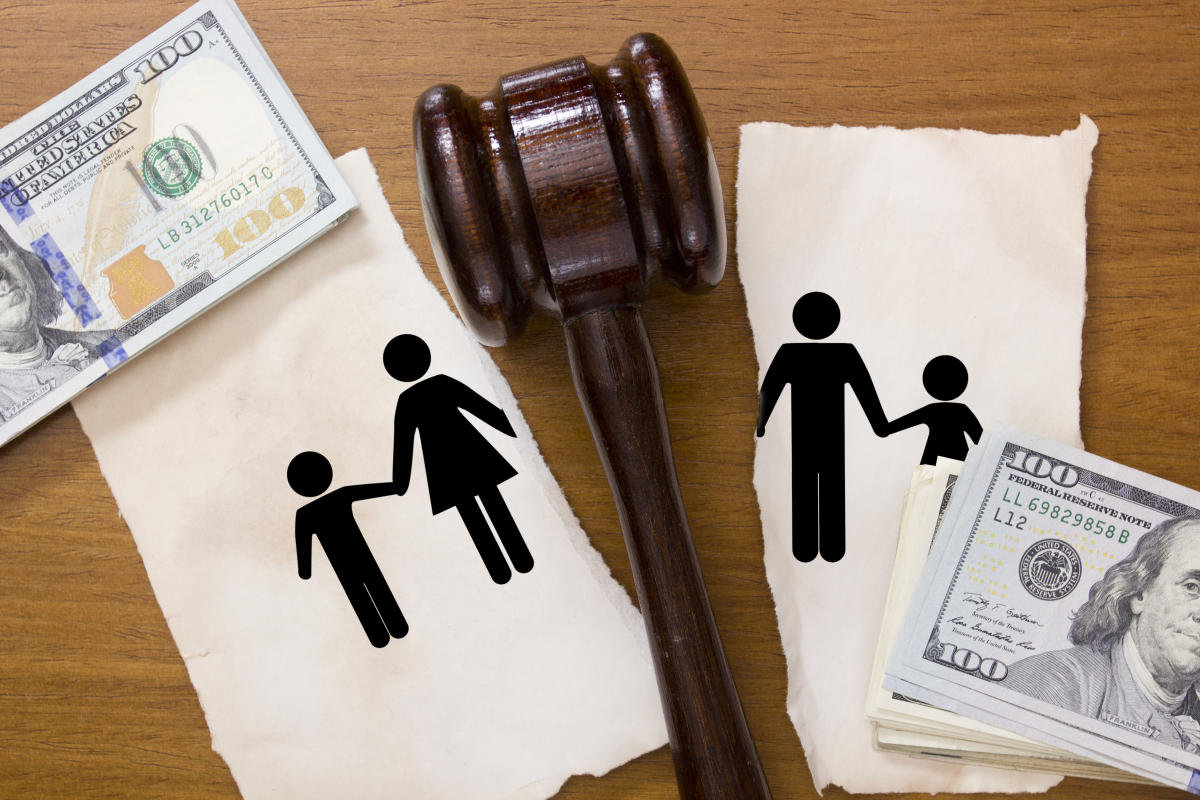Divorce Settlement Statute of Limitations

There is a time limit for dealing with things arising from a divorce agreement, which is known as the "divorce settlement statute of limitations." Different states have different rules. These limits are pretty important in the U.S., where about 40-50% of marriages end in divorce. Imagine you are attempting to settle who gets what following a split, for example, child custody, support, and property. The clock is ticking on how long you have to act. In 2019 alone, there were over 746,000 divorces in the U.S. That’s a lot of folks dealing with these time limits. Since these rules vary from place to place, speaking with a legal professional would be wise.
What Is the Statute of Limitations on a Divorce Settlement?
The statute of limitations on divorce settlements can vary depending on whether you’re in a “no-fault” or “at-fault” state. In “no-fault” states, where divorces focus on marriage breakdown rather than assigning blame, the time limits for enforcing settlement terms like spousal support, child support, property division, and custody arrangements can differ. “At-fault” states, where one spouse might need to prove wrongdoing like adultery or abuse, also have varying limitations based on the nature of the claim.
For instance, when it comes to property division, some states might not have a set time limit for enforcing agreements, while others do with carrying lengths. Spousal support and child support enforcement timeframes can differ based on state law and the terms in the agreement. If someone isn’t complying with court-ordered terms, like support payments, the statute of limitations for enforcement can differ too.
How To Reopen a Divorce Settlement Agreement
Sometimes, after a divorce settlement has been finalized, things can change. These changes might be related to mistakes in the original agreement, important things that were left out, or big shifts in your life situation. These changes could include how much money you’re making, your health, where you’re living, or other important things going on in your life. When these changes happen, you might want to adjust the agreement so that it still works well for both sides. It’s like trying to fine-tune things to match what’s happening now. But remember, getting these changes approved involves a legal process, so it’s wise to have a lawyer who knows the ins and outs of these things to help you through it.
Consult an Attorney
Before you start making moves, talking to a family law attorney is a good idea. Share why you’re thinking about changing the settlement. These are legal experts who possess in-depth knowledge. They’ll help you figure out if your situation is the kind that can be changed, and they’ll walk you through what needs to be done step by step.
Gather Evidence
Compile evidence that demonstrates why you want things to be changed. For example, collect information such as bank records, medical reports, or any other documents that demonstrate the differences between now and then. Basically, you present evidence that supports your request for change.
Mediation or Negotiation
Often, it’s suggested that both sides give mediation or negotiation a shot before heading to court. It’s a bit like trying to work things out through talking rather than having a big legal battle. If you both say, “Yeah, let’s make these changes,” then the court might not need to be too involved. When both parties agree, it's possible to establish a shared understanding without the need for complicated legal procedures.
File a Motion
If you cannot reach an agreement after talking it out, your lawyer will step in. You will receive assistance in drafting a formal request to the court, known as a "motion." In this motion, you explain why you wish to make a change and give evidence to support your claims. In other words, you present the court with the key reasons why you believe things need to be changed.
Serve Notice
A copy of the motion and the supporting documents must be sent to the other party. Essentially, it is a way of ensuring that they understand what you are asking for. They are given the opportunity to express their opinions. If they are in agreement, they may say, "Sure, let's make the changes." Or they may not agree and explain why. They may even suggest other changes that would be more beneficial. The purpose is to allow both sides to have their say before any action is taken.
Court Hearing
The court steps in if you and the other person can’t figure things out. They’ll set up a meeting, like a discussion time, where everyone gets together. Both sides get to talk about what they believe and show their proof. Then, the judge, who’s like the decision-maker, listens carefully, and looks at all the information. After that, they make a choice based on what they think is fair and right. It’s kind of like the judge putting all the pieces together to decide what should happen next.
Decision
After reviewing all the evidence presented and statements made by both parties, the judge considers whether modifying the agreement is reasonable. The judge takes various factors into account, including the truthfulness of your statements, the well-being of any children involved, and legal guidelines. Ultimately, the judge determines whether changes are necessary or if the original agreement should remain in place. It's similar to the role of a referee, ensuring fairness and logical decision-making.
Amended Agreement
If the judge says it’s okay to make changes, then it’s time to create a new agreement that includes those changes. Both sides need to agree on this new version and sign it. Essentially, it ensures that everyone is on the same page about the new rules.
Enforcement
Upon signing the new agreement with the changes, both sides must adhere to the terms of the agreement. If someone doesn’t follow what they promise, there can be consequences. If they fail to comply with what they agreed to, they may be taken back to court by the other party.
Four Common Reasons Divorce Settlements Are Contested
Child Custody and Visitation Disputes
Both sides are concerned with what is best for the children, and that can lead to disagreements regarding who can make decisions, where the children will live, and how often they will see the parent with less custody. Everybody wants the right outcome for their little ones but may have differing views on how to achieve that goal.
Property and Asset Division
When splitting assets and money after a divorce, things can get heated, especially if a lot is at stake. Things can become heated when there are large matters involved, such as houses and investments. Family members may argue over who gets the family home, how to divide assets, and who retains personal possessions. It can be challenging to determine what is fair and who receives what, leading to arguments that might require a judge to decide.
Spousal Support (Alimony)
There can be conflict when determining whether one spouse should receive financial support after a divorce. The person making payments may argue that the requested amount is too high, while the person receiving it may consider it inadequate. It is important to note that the length of the marriage, the income level each individual earns, and their financial situation can play a significant role in the argument. The goal is to find a balance that is acceptable to both sides.
Child Support Amount and Terms
Parents can disagree when determining how much child support one should provide for the other to cover the children's expenses. There may be disagreements over the appropriate amount each parent should contribute, the most effective way to split costs, and if changes are necessary in the future as circumstances change. It is a matter of determining what is fair for everyone while considering the children's needs and how the situation might change.
How Can a Divorce Attorney Help?
A divorce attorney can be a crucial ally during the challenging process of divorce. They offer expert legal guidance, ensuring you understand your rights and options. Attorneys help navigate complex paperwork, mediate disputes, and work toward fair settlements on child custody, property division, alimony, and child support. They can negotiate on your behalf, potentially avoiding costly court battles. In contested cases, they prepare and present your case in court, striving to achieve the best outcome. To find a divorce attorney, consider referrals from friends, family, or other professionals, your local bar association, and even the Expertise.com divorce attorney directory. Choose an attorney specializing in family law and with experience in your jurisdiction.
Expertise.com StaffAuthor
Step into the world of Expertise.com, your go-to hub for credible insights. We don't take accuracy lightly around here. Our squad of expert reviewers, each a maestro in their field, has given the green light to every single article you'll find. From rigorous fact-checking to meticulous evaluations of service providers, we've got it all covered. So feel free to dive in and explore. The information you'll uncover has been stamped with the seal of approval by our top-notch experts.




